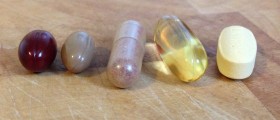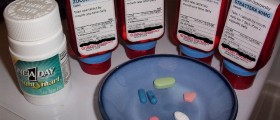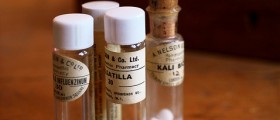
Vitamins and herbs are often consumed in the form of dietary supplements. This is a type of preparation that is used to supplement the diet and provide various health necessary nutrients: vitamins, minerals, fatty and amino acids, or fiber. Regulation of vitamins and herbal supplements varies from one to another country. In some countries, they are defined as foods while in some other countries public regulations consider dietary supplements as drugs or natural health products.
What is a dietary supplement?
In the United States, dietary supplements are described by the Dietary Supplement Health and Education Act of 1994. This description is valid even today, and it explains dietary supplements as products used to supplement the diet that contain any of the following: a vitamin, a mineral, a herb or other botanical ingredient, an amino acid, or a concentrate, metabolite, constituent, extract, or combination of any of the above. However, herbal supplements cannot contain tobacco, even though it is a botanical ingredient. Dietary supplements also need to be intended for ingestion and not represented for use as a usual food or as the individual item of a meal or diet. Dietary supplements also need to be in a form of a pill, capsule, tablet, powder or liquid form, and clearly labeled as a dietary supplement.The only exceptions to this rule are steroid hormones and pineal hormone melatonin, which are also marked as dietary supplements. Regulation of dietary supplements in the United States
In the United States, vitamin and herbal supplements are regulated by the Food and Drug Administration (FDA). This institution is an agency of the United States Department of Health and Human Services, one of the United States federal executive departments. It deals with protecting and promoting public health through the regulation and supervision of food safety, tobacco goods, dietary supplements, prescription and over-the-counter pharmaceutical medication, vaccines, biopharmaceuticals, blood transfusions, medical devices, electromagnetic radiation emitting devices, veterinary products, and cosmetics. The FDA agency regulates dietary supplements as a category of foods, and not as drugs. This actually means that dietary supplements do not need to be pre-approved by the FDA before they become available for purchase. If dietary supplements were considered drugs, the manufacturers would be required to obtain FDA approval before marketing the product. This would also include estimating the risks and benefits to health, which is now not the case. As from the 2007, the FDA demands that dietary supplements do not contain contaminants or impurities, and are accurately labeled.

















Your thoughts on this
Loading...